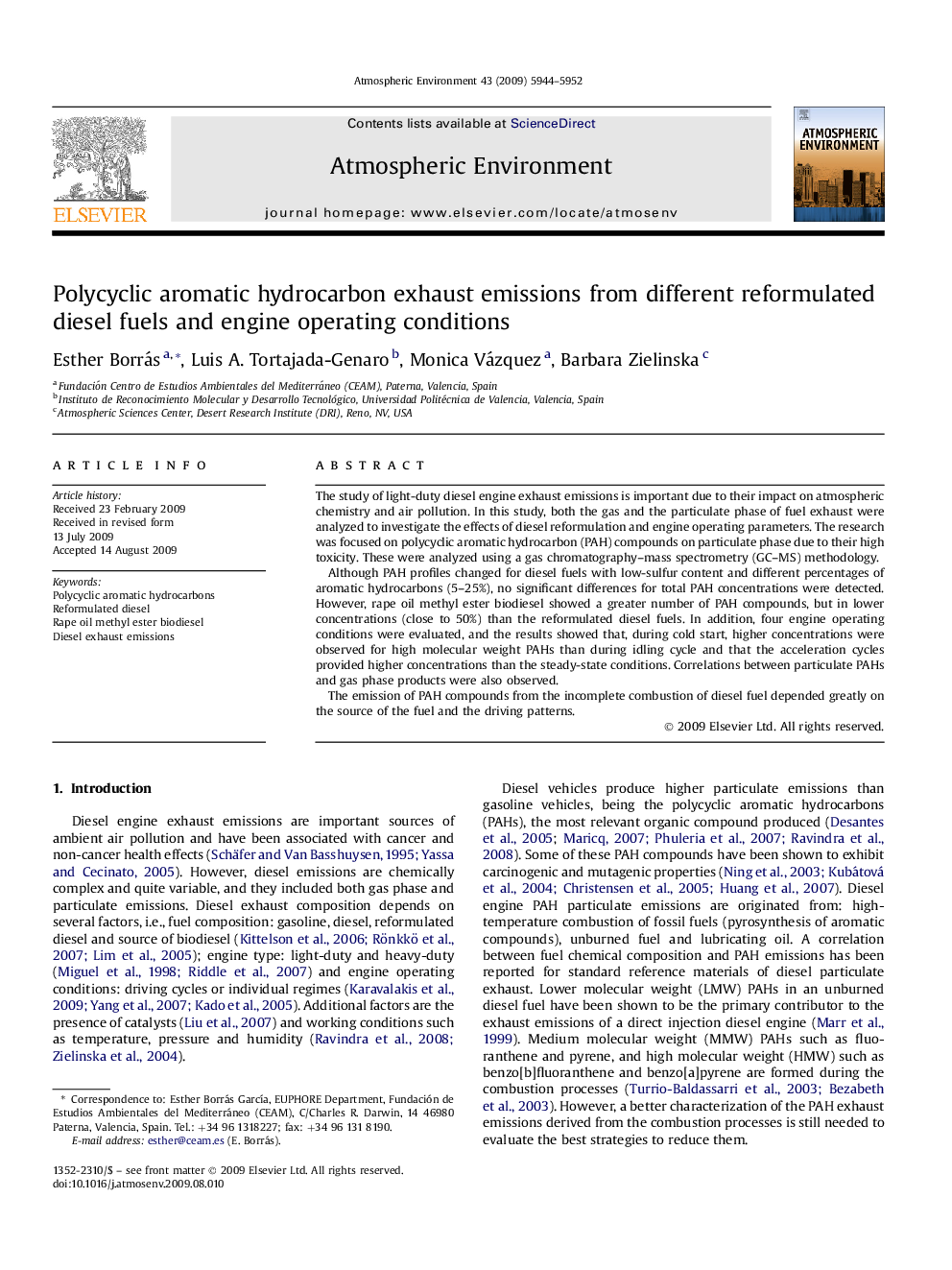| Article ID | Journal | Published Year | Pages | File Type |
|---|---|---|---|---|
| 4441439 | Atmospheric Environment | 2009 | 9 Pages |
The study of light-duty diesel engine exhaust emissions is important due to their impact on atmospheric chemistry and air pollution. In this study, both the gas and the particulate phase of fuel exhaust were analyzed to investigate the effects of diesel reformulation and engine operating parameters. The research was focused on polycyclic aromatic hydrocarbon (PAH) compounds on particulate phase due to their high toxicity. These were analyzed using a gas chromatography–mass spectrometry (GC–MS) methodology.Although PAH profiles changed for diesel fuels with low-sulfur content and different percentages of aromatic hydrocarbons (5–25%), no significant differences for total PAH concentrations were detected. However, rape oil methyl ester biodiesel showed a greater number of PAH compounds, but in lower concentrations (close to 50%) than the reformulated diesel fuels. In addition, four engine operating conditions were evaluated, and the results showed that, during cold start, higher concentrations were observed for high molecular weight PAHs than during idling cycle and that the acceleration cycles provided higher concentrations than the steady-state conditions. Correlations between particulate PAHs and gas phase products were also observed.The emission of PAH compounds from the incomplete combustion of diesel fuel depended greatly on the source of the fuel and the driving patterns.
